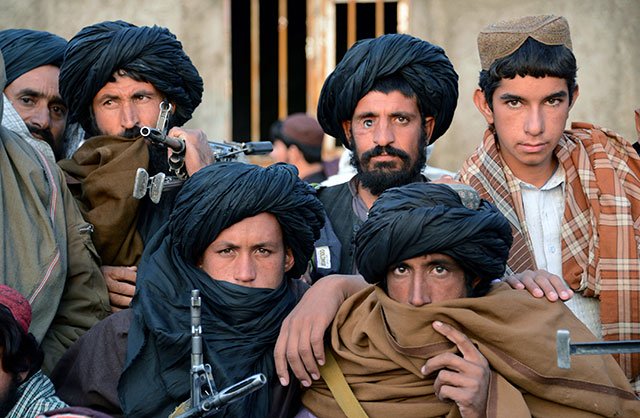
Delegates from Afghanistan, Pakistan, China and the United States held talks in Pakistan on Monday to try to resurrect efforts to end nearly 15 years of bloodshed in Afghanistan. They plan to meet again in Kabul on Monday.
Taliban toughen stance on peace talks ahead of quadrilateral meetingc
"We are very keen to emphasise the urgency of having talks going in view of the need to be talking and getting a process going during the lull in the fighting season," the senior official said.
He said the four countries had agreed that no Afghan groups would be excluded from the talks and that there would be no preconditions for joining.
"It's clear that the Taliban have not yet decided to join the reconciliation process, but we are proceeding on the basis that we have to test the proposition," the official said.
It was up to the Afghan government to discuss what incentives the Taliban could be offered, he said, adding there were indications the militant group wanted to avoid the international isolation it felt when in power before 2001.
Despite intensified battles, the Taliban had been unable to hold onto territory they had seized, the official said.
"It is by no means certain they necessarily can win on the battlefield," he said. If the Taliban sought a degree of legitimacy, "that can only be achieved by them negotiating a place on the political table."
Taliban not averse to talks but ‘in no hurry’ either
On Tuesday, Afghanistan's chief negotiator, Deputy Foreign Minister Hekmat Karzai, said he was hopeful the insurgents would join the process but warned that public support would wane if there were no quick results.
A previous round broke down in July after it became known that the Taliban's founder and leader, Mullah Mohammad Omar, had been dead for two years and his deputy Mullah Akhtar Mansoor had been in control.
The news badly damaged trust between Kabul and Islamabad, which many in Afghanistan believed had taken part in the cover-up, and set off a bloody leadership struggle within the militant movement.
Taliban toughen stance on peace talks ahead of quadrilateral meeting
A substantial faction led by Mullah Mohammad Rasoul has rejected Mansoor's authority. Militants close to Mansoor have said they may consider joining talks, but so far Rasoul's faction has ruled out any such efforts involving foreign powers.


1729662874-0/One-Direction-(1)1729662874-0-165x106.webp)







1732101971-1/Copy-of-Untitled-(53)1732101971-1-270x192.webp)






COMMENTS
Comments are moderated and generally will be posted if they are on-topic and not abusive.
For more information, please see our Comments FAQ